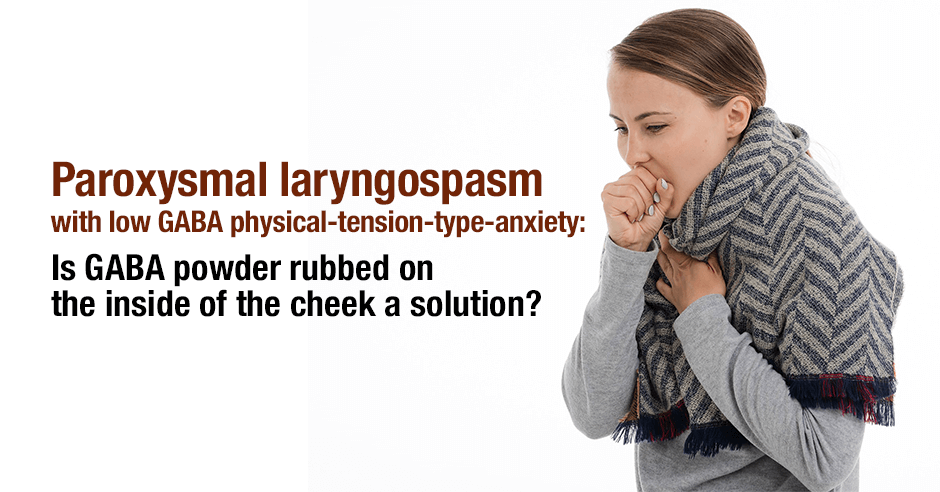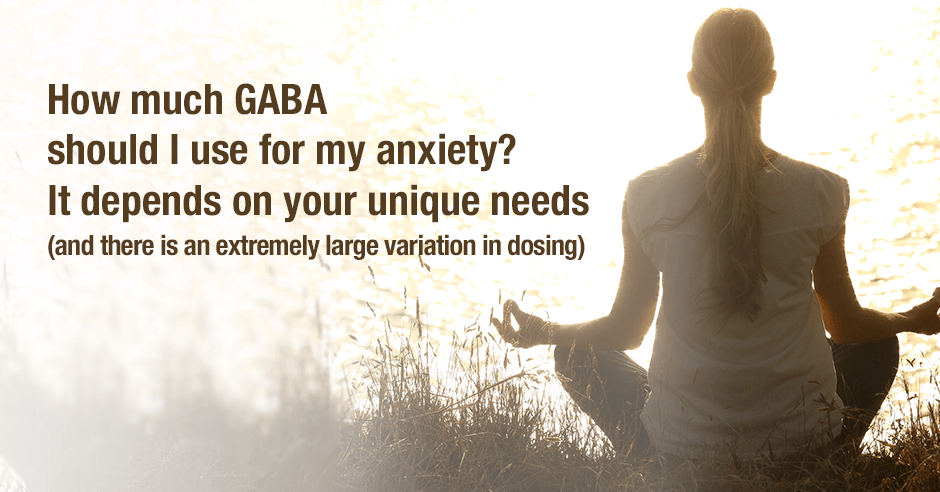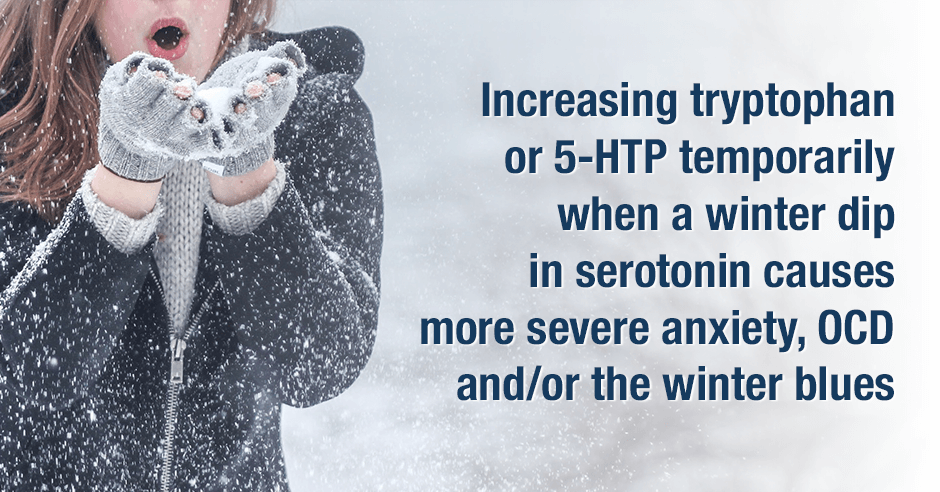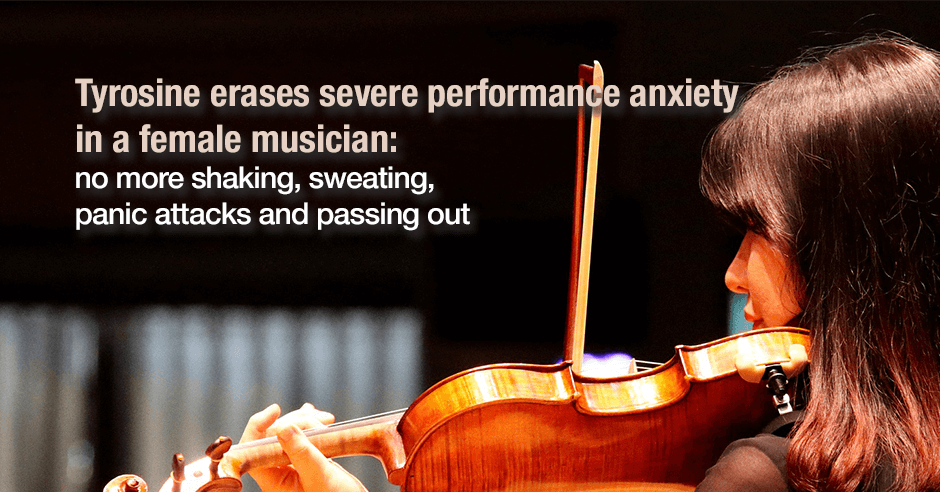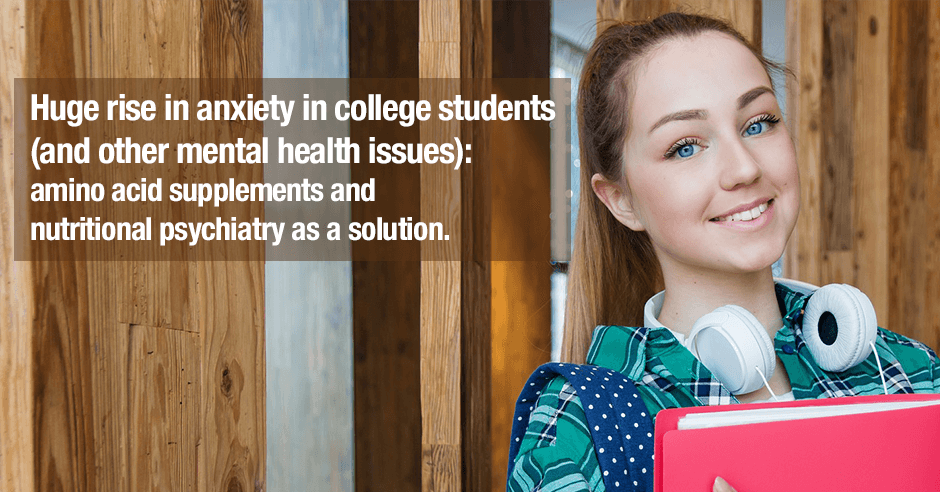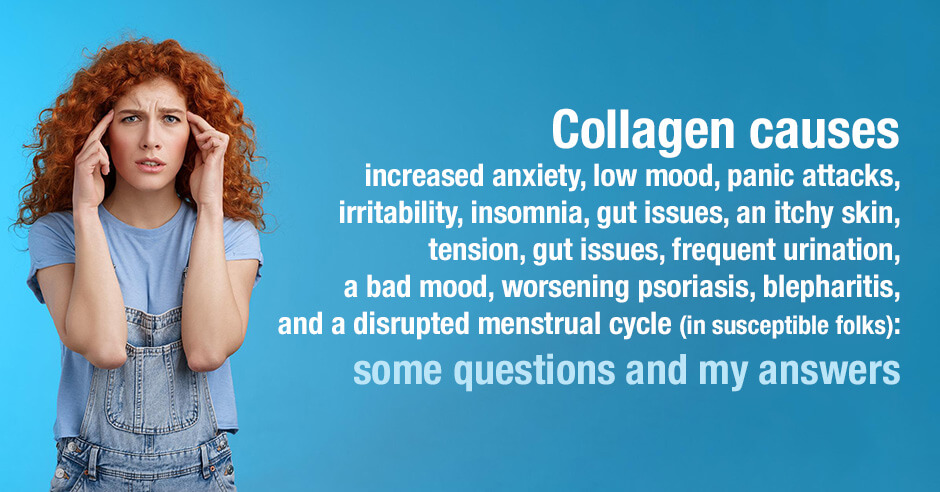
Today we have some feedback from folks on some of the negative impacts they experienced when consuming collagen. I’m sharing their questions and the feedback I gave them in the hope this will help you too. Not everyone experiences unpleasant symptoms when consuming collagen but those who are susceptible may experience the following: increased anxiety or new anxiety, feeling low, inability to sleep or worsening sleep, tension, irritability, gut issues, itchy skin, frequent urination, a bad mood, worsening psoriasis, blepharitis, panic attacks and a disrupted menstrual cycle.
The causes of these symptoms can be due to the serotonin-lowering effects of collagen, the dietary oxalate impact, a histamine reaction and/or a glutamate reaction to collagen.
Beth shares how she feels low and anxious after using marine collagen for five days:
Have just recently begun receiving your emails. I read the above article and wanted to let you know of my experience. I started taking Vital Proteins marine collagen to see if it would improve sun damage to my skin. I took one scoop for about five days. On the fifth day I felt very low. So low that it made me somewhat anxious. As I have trouble with anxiety I stopped it immediately. Felt better the next day. The container lists 19 amino acids including tryptophan but the amount of it is zero mg. I hadn’t noticed that when I started taking it. After reading your article I’m fairly sure that that is why I felt depressed.
I shared this: for individuals who have observed a mood dip or increase in anxiety since using collagen or gelatin, I suggest they stop using collagen/gelatin and see how they feel, then add it back and see how they feel (sometimes more than once if they are not certain).
If they do see a correlation, look at the low serotonin symptoms and do a trial of tryptophan or 5-HTP (after checking the precautions) to see if this improves their low mood and reduces their anxiety when using collagen/gelatin. This confirms if their symptoms are due to the serotonin-lowering effects and allows them to continue using it for the benefits it provides.
Be sure to read the above collagen/serotonin blog for some of the research on what makes some folks more susceptible to the serotonin-lowering effects: a current depression/anxiety or history of depression/anxiety (even a family history), prior use of antidepressants, OCD / obsessive compulsive disorder, MAOA and/or 5-HTTLPR (the serotonin transporter gene) polymorphisms, smokers or former smokers, and women polydrug ecstasy users. This is not a conclusive list.
It’s interesting that she mentions her product has tryptophan listed with zero mg. When I looked online I didn’t see it listed on the product at all. Maybe it’s a change they have made to the label.
I also shared that when you are new to the amino acids (and other anxiety nutrition solutions like real whole food, quality animal protein, fermented foods, organic produce, health fats, gluten/sugar/caffeine removal, blood sugar control, gut health, pyroluria etc) my book “The Antianxiety Food Solution” is a great place to start.
The above question and the following questions come from the popular blog, Collagen and gelatin lower serotonin: does this increase your anxiety and depression?
How long after stopping bone broth does it take for this anxious feeling to leave?
Diane asks about bone broth and collagen and how it causes extreme anxiety and sleep problems:
I just finished your book and have to say how awesome it is ! A wealth of information. As I am struggling with many of the issues, I do have a question on bone broth and collagen. I have definitely noticed extreme anxiety and inability to sleep with bone broth and collagen supplement.(plus spring allergies are at play as well) I even tried a piece of Turkey with my bone broth this week to see if that helped. I have such gut issues I was really hoping to use bone broth. Anyway, my question is how long after stopping bone broth does it take for this anxious feeling to leave? Days or weeks? I want it cleared out before I try adding tryptophan with the broth.
I thanked her for the great feedback on my book. It’s wonderful to have the foundational stuff in place and she’s getting that from my book.
I don’t have an answer on how long symptoms can last as it’s very individualized. Typically if the effects are caused by serotonin being lowered, using either tryptophan or 5-HTP can result in significantly less anxiety and better sleep in a few days, provided the optimal dose is used.
Keep in mind that spring allergies can often make things worse and more tryptophan or 5-HTP may be needed during the allergy period. The dose would then need to be reduced once allergy season has passed. I blog about spring allergies and increased anxiety here.
My advice would be to use the tryptophan or 5-HTP to resolve the anxiety and insomnia and then once resolved, consider adding back the collagen and monitoring how she is doing. At this time she may need to bump up her tryptophan or 5-HTP yet again.
Is it a histamine reaction rather than low serotonin? (or an oxalate or glutamate reaction?)
Kelly believes her symptoms may be a histamine reaction and not caused by low serotonin:
If you become anxious, tense, irritable, can’t sleep AND have some issues with itchy skin, frequent urination, worsened gut issues, etc., then it’s a histamine problem from the collagen/glycine, and not serotonin at all.
I shared that these symptoms could actually be both since low serotonin can also cause anxiety, tension, irritability and insomnia. But I agree the itchy skin, frequent urination, worsened gut issues are a big clue it’s a histamine issue too or perhaps only a histamine issue. Gut issues would happen with both low serotonin and histamine.
I’d start with a trial of tryptophan or 5-HTP because if it is low serotonin you will know very quickly. You can see what symptoms resolve and by how much.
Challenges with dietary oxalates could cause all the symptoms she experiences. So it’s a matter of figuring it out for each person. If you already know you have histamine or oxalate issues it’s also relatively easy to figure out by simply stopping the collagen and/or adding the counter-measures you typically use – like quercetin for histamine reactions and calcium citrate for oxalate issues.
It’s possible that some of these symptoms are a glutamate reaction too – like anxiety, tension, irritability and insomnia – and the amino acid GABA may help in this instance.
A bad mood, insomnia, psoriasis, blepharitis, panic attacks, hormone imbalance – oxalates or serotonin-lowering effects?
Em shares how she had a really bad mood, full blown insomnia, worsening psoriasis, blepharitis, panic attacks and disrupted menstrual cycle:
I am soooo glad I found this article. I started taking Oslo Skin Labs collagen (Verisol, so it is considered good quality) half way through December 2021. Looking back, that is when the problems started. I started sleeping restlessly and it got really bad in January. Full blown insomnia. My psoriasis got much worse, the blepharitis too. I have severe Endometriosis and was worried that if these other inflammation issues (psoriasis causes skin inflammation and blepharitis causes eye inflammation) were worse then maybe my endo was worse also since that can’t be checked on the outside.
Besides the inflammation symptoms I was experiencing extremely bad moods, feeling tense to the point of bordering on panic attacks and also a disrupted menstrual cycle.
I have been on Amitriptyline for 1,5 years and it worked wonders on my mood and sleep and I just couldn’t figure out why it wasn’t working any more. Then I realized that the only thing I changed was adding collagen to my diet in my fruit/vegetable smoothie ( I don’t drink coffee). So I started Googeling and found your article and stopped the collagen immediately. Have stopped for 2 days now and already my eyes are less red and inflamed. Pfew! It’s crazy and also scary how serious the side effects of collagen have been.
Do you think that besides the tryptophan lowering side effect that also the histamine might have played a part in my case? I don’t dare try the collagen with tryptophan supplement as the potential side effects are too serious to play around with. But I’m very bummed out about missing out on the skin and hair benefits.
Would love to hear your thoughts. I follow a vegetarian diet by the way and eat super healthy.
With Em I’d suspect an oxalate issue first because of the worsening psoriasis, blepharitis and endometriosis. She is also a vegetarian and this diet is often high in dietary oxalates. I write about oxalates and pain here.
However, with the “bad moods, feeling tense to the point of bordering on panic attacks and also a disrupted menstrual cycle”, I’d also suspect a serotonin-lowering impact. As mentioned above, a history of mood issues and antidepressant use can be a predisposing factor. She would need to work with her prescribing doctor if she wanted to use tryptophan or 5-HTP because Amitriptyline has the potential to cause serotonin syndrome.
It’s also possible that her symptoms are caused in part by a histamine or glutamate reaction too.
With appreciation for helping to create awareness about these issues with collagen
I have much appreciation for each of these women for asking these questions and sharing their symptoms so we can all learn. There is not much awareness about collagen being problematic for some susceptible folks and it’s a very rude awakening when you start using something for the health benefits and have a bad reaction. Hopefully their stories and others like this will help create more awareness.
The good news is that once you identify your cause/s and address them as above, you can often continue to consume collagen.
Resources if you are new to using tryptophan/5-HTP and other amino acids as supplements
If you are new to using any of the amino acids as supplements, here is the Amino Acids Mood Questionnaire from The Antianxiety Food Solution (you can see all the symptoms of neurotransmitter imbalances, including low serotonin and low GABA).
If you suspect low levels of any of the neurotransmitters and do not yet have my book, The Antianxiety Food Solution – How the Foods You Eat Can Help You Calm Your Anxious Mind, Improve Your Mood, and End Cravings, I highly recommend getting it and reading it before jumping in and using amino acids on your own so you are knowledgeable. And be sure to share it with the practitioner/health team you or your loved one is working with.
There is an entire chapter on the amino acids and they are discussed throughout the book in the sections on gut health, gluten, blood sugar control, sugar cravings, self-medicating with alcohol and more.
The book doesn’t include product names (per the publisher’s request) so this blog, The Antianxiety Food Solution Amino Acid and Pyroluria Supplements, lists the amino acids that I use with my individual clients and those in my group programs. You can find them all in my online store.
If, after reading this blog and my book, you don’t feel comfortable figuring things out on your own (i.e. doing the symptoms questionnaire and respective amino acids trials), a good place to get help is the GABA QuickStart Program (if you have low GABA symptoms). This is a paid online/virtual group program where you get my guidance and community support.
If you are a practitioner, join us in The Balancing Neurotransmitters: the Fundamentals program. This is also a paid online/virtual program with an opportunity to interact with me and other practitioners who are also using the amino acids.
Have you experienced any adverse symptoms when using collagen? Please share the symptoms so we can all learn from each other .
And were you able to figure out if it was due to low serotonin, a histamine or glutamate reaction or because of dietary oxalates?
If it was low serotonin, has tryptophan or 5-HTP helped so you can continue to use collagen?
If you have questions please share them here too.
